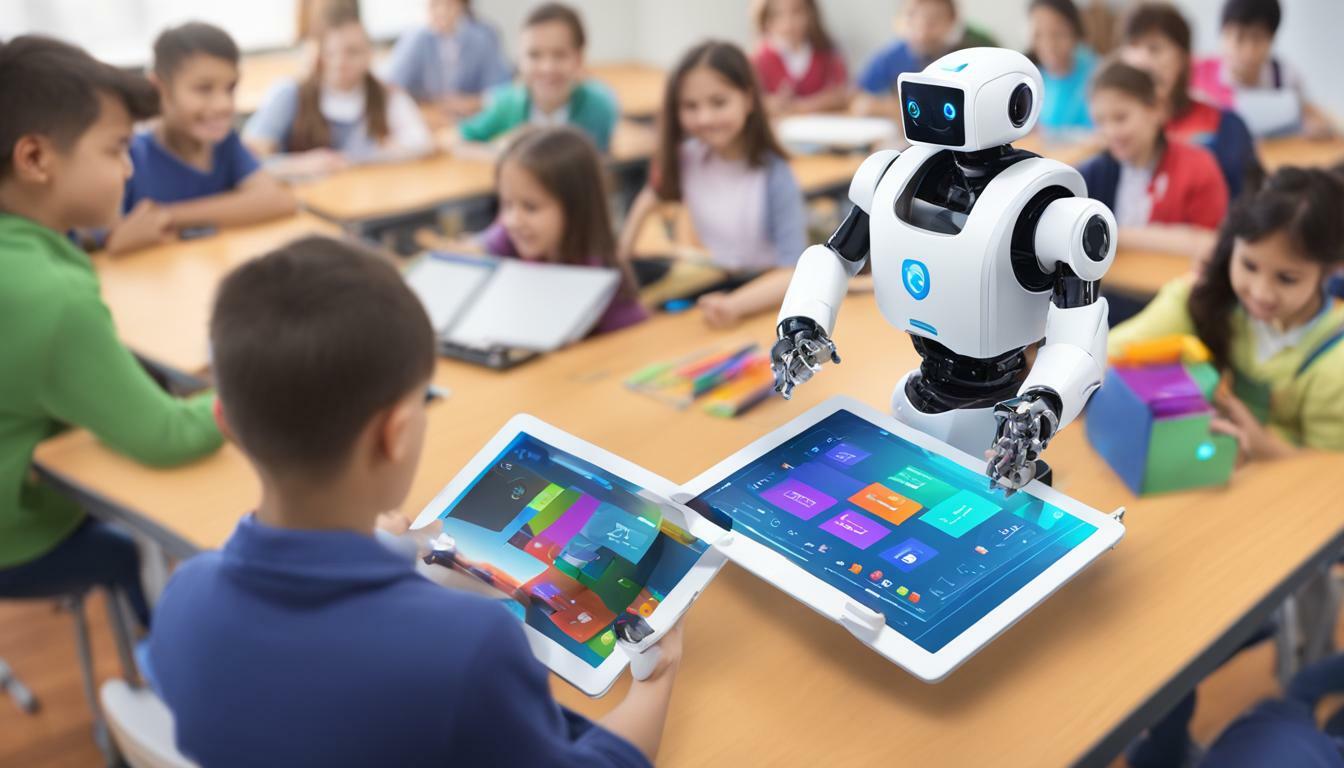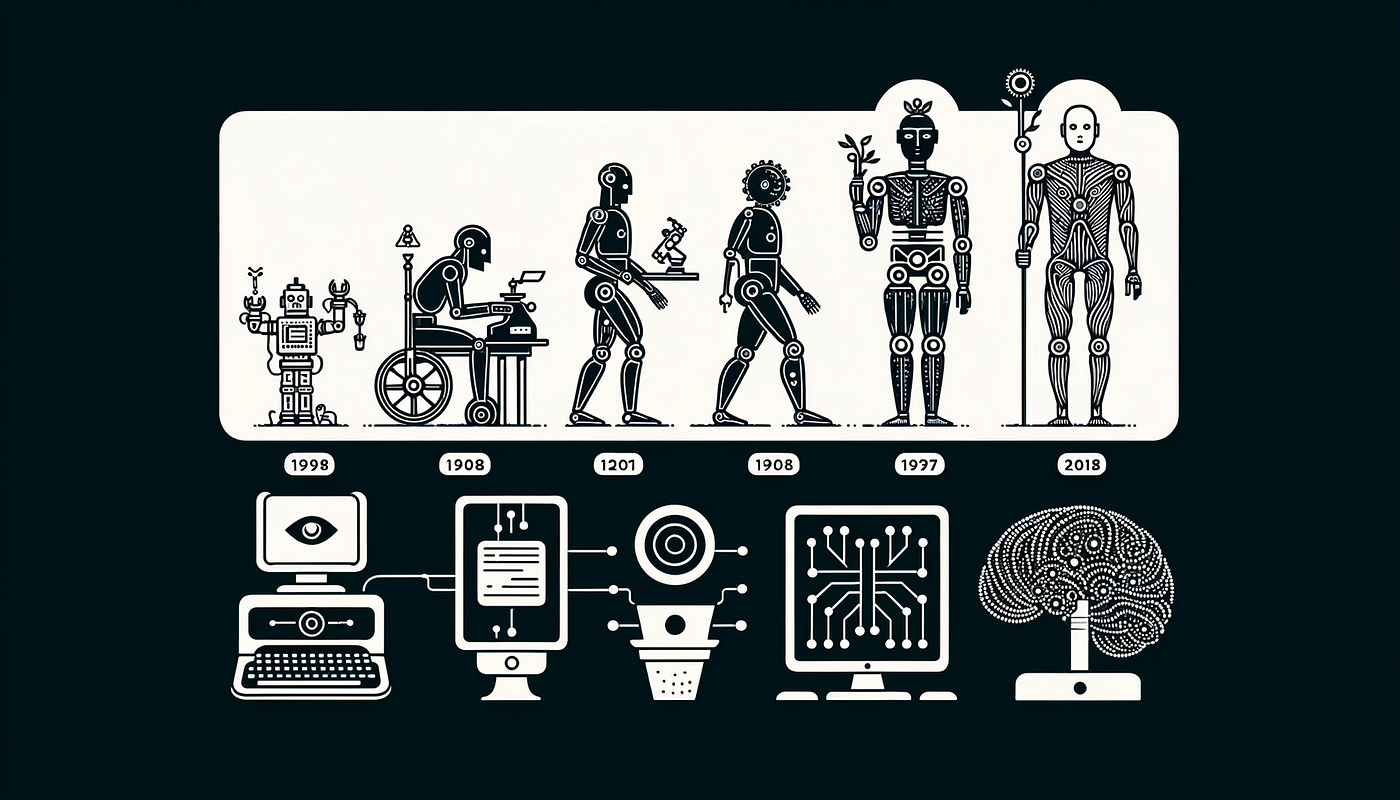Introduction
Role of AI in Enhancing Educational Tools and Resources Recent years have seen tremendous advancements in a number of fields, with artificial intelligence (AI) at the forefront of technological innovation. The field of education is one where AI has a particularly significant impact. The idea that AI can improve educational tools and resources is no longer futuristic; it is happening right now. Artificial intelligence (AI) is transforming the way we learn, teach, and engage with educational content through personalized learning experiences and advanced analytics. But what exactly does this mean for students, teachers, and the future of education?
The goal of integrating AI into education is to create a more dynamic, inclusive, and productive learning environment rather than just automating procedures. Teachers can better serve students with varying learning needs by utilizing AI, increasing educational accessibility for all. Students benefit from a learning environment that is enhanced with interactive tools and resources and is customized to meet their specific needs. There is great potential and a significant transformation.
To learn about History of Artificial Intelligence
The Rise of AI in Education
AI has rapidly integrated into the educational sector, offering tools and resources that were unimaginable just a few decades ago. AI has the potential to improve learning environments as long as technology keeps developing. Let us examine how artificial intelligence is currently being used to improve educational resources and tools.
Personalized Learning and the Use of AI
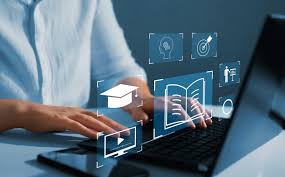
There is no doubt that AI is revolutionizing education, and one of the most apparent transformations is seen in the aspect of personalization. In effect, by altering the conventional teaching approach of one size fits all in a class, AI adapts learning materials to the different learners to ensure that every learner is well catered for.
The emergence of intelligent learning systems results from the fact that AI platforms provide sets of exercises and particular learning materials that help the student understand particular material in accordance with his or her profile and achievements, forming effective learning management systems. These systems can follow up on the learners pace, offer an immediate response to their activities, and modify the delivery in the process.
- Personalized Study Schedules: AI can also help come up with study schedules that are indexed to the specific strengths and challenges they may face in their academics.
- Intelligent Tutoring Systems: Such systems are implemented in the context of individual differential learning, where a professed AI assistant helps, encourages, and responds immediately.
However, it works in such a way that students do not passively absorb knowledge but are actively involved in their learning process. Using a comprehensive approach to analyzing data, AI is able to detect knowledge deficits and offer literature that addresses them. Besides, it promotes the encouragement and motivation of the student as well as optimum results from the learning process.
Enhancing Accessibility in Education
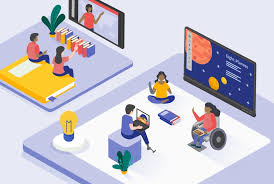
AI is also helpful in making education feasible for students of all types of disabilities, both physical and mental.
- Speech-to-Text Technology: Students who have a disability can benefit from speech-to-text applications where, through voice commands, what is said by the teacher in a class or instructions given by instructors for specific assignments can be typed down.
- AI-Powered Translation Tools: Language barriers are a major challenge in teaching, and their impact is being nullified by the AI systems that are offering immediate translation services to ensure that content in a course, regardless of the language used, is understood by students who may be learning in their second language.
- Virtual Classrooms: Since the advent of AI, virtual classrooms are being developed into a more advanced platform where students all over the world can come together.However, AI transcends the classroom and plays a significant part in improving accessibility.
For example, AI features might include useful options for dyslexic students, such as the ability to read texts aloud. Likewise, intelligent formative applications can meet the needs of students with visual impairments by offering them audio descriptions or braille materials. Such innovations guarantee that every child, no matter how effective he or she is, has the opportunity to get a quality education.
AI’s Impact on Teaching Methods

How AI is Enhancing Educational Tools is not limited to students; teachers too are benefiting from this technological revolution. AI is transforming the way educators approach teaching by offering new tools that streamline tasks and improve the learning experience.
AI-Powered Grading Systems
Among all the teaching and learning activities, grading is one of the most consuming processes teachers face. However, this has gradually been eliminated with the installation of advanced AI grading systems.
- Automated Essay Scoring: AI can help in grading essays and offer feedback within seconds, thereby sparing teachers a task that is time-consuming. These systems can not only detect grammatical and spelling errors but also understand the structure and quality of the argument.
- Real-Time Analytics: AI tools provide solutions in real-time mode based on the student’s performance, and the teacher can find out where the student is weak and address the problem.Grading assignments and offering feedback in a short time implies that AI offers the necessary assistance at the exact times the student requires it. While teachers, on the other hand, are relieved of numerous other routine tasks, they are able to focus more time and effort on offering their attention and time to their students. Such a mutually beneficial cooperation between AI and educators is improving the quality of education as well as making it more effective and focused on learners.
Enhancing Curriculum Development
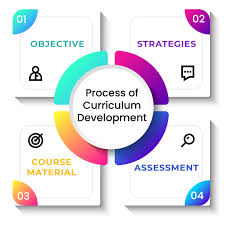
AI is also being used in matters related to curriculum development to make sure that the content in school is current.
- Data-Driven Insights: These systems help educators improve their lesson plans by sifting through huge amounts of educational information to find common patterns and areas lacking in the existing curricula.
- Content Recommendation Engines: In the same way that streaming services can teach the platform and recommend TV shows, AI can recommend educational materials that meet the curriculum and requirements of the students.Education trend and pattern analysis is something that AI is capable of providing, and educators can benefit from it.
Here, AI plays a crucial role in pinning, showing that curricula are indeed relevant in a growing society by pointing out topics and skills that are deemed important as society continues to evolve. This is not only advantageous to students in as much as it helps them prepare for what lies ahead, but also for teachers, whereby it makes it possible for them to disseminate information that is relevant and can make a difference in society.
Supporting Teachers with AI Assistants
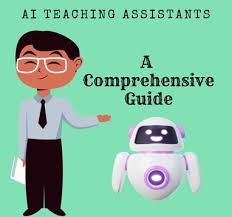
Smart virtual assistants are commonly used in the classroom as educational resources, helping teachers with various activities.
- Lesson Planning: Using AI in Education for lesson planning, it is possible to select activities, materials, and approaches that conform with the educational guidelines, further contributing to personalized learning.
- Classroom Management: AI in Education can assist in managing student behavior in the classroom by giving directions on effective approaches, making educational resources even more impactful.
These AI assistants are not employed with the aim of reducing the amount of work that teachers do; they are about improving teaching standards. By using AI in education for teachers, it creates a positive atmosphere in the classroom because it offers educators data and recommendations to promote a more successful learning process. Additionally, AI in education has the benefit of observing learners’ behavior in class, giving feedback, and resolving any emerging problems, thereby promoting an effective learning environment and fully integrating personalized learning.
To learn more Visit: https://www.futurize.studio/blog/the-role-of-ai-in-education
AI in Educational Content Creation
In the field of content creation, AI in education is also improving educational resources and tools. AI-powered tools assist teachers in developing dynamic, interesting lesson plans that meet the various needs of their students, a crucial part of personalized learning.
AI-Generated Content
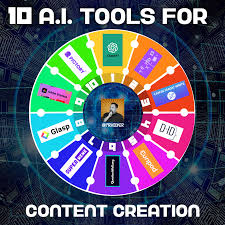
Analytically, it is evident that AI can help in creating educational content such as quizzes, assignments, and even lesson plans.
- Automated Quiz Creation: This is because AI in Education tools can create quizzes based on the points covered in class, ensuring all tests administered are coherent with the learning outcomes, supporting personalized learning.
- Interactive Lessons: With AI in education, one can design lessons as an ongoing dialogue between the student and teacher, and the content can change based on the student’s response, further enhancing personalized learning.
- Dynamic Learning Resources: With AI, one can develop personalized learning materials that are refined and updated based on the student’s performance. This ensures the student is sharp all the time.
Enhancing Engagement with AI
In the topic of education, AI has been notable for providing increased engagement to students, which is so important in the issue of learning.
- Gamification: Organizing learning through AI elements of game processes can be added to more effectively interest students. Thanks to the application of the game elements, including rewards, tasks, and scores, AI can enhance the student’s performance.
- Virtual Reality (VR) and Augmented Reality (AR): AI-integrated VR and AR are helping students get insights about new concepts through efficient visualization in an interactive manner. Such technologies could also enhance the presentation of issues that would be hard to explain and might even make knowledge acquisition more fun.AI is capable of developing individual, participatory, and interesting content, which is definitely revolutionizing the idea of education through educational media. On one hand, it brings invaluable benefits for learners who can receive better and improved knowledge from a teacher; on the other hand, it provides teachers with the tools necessary for the creation of more efficient and influential lessons.
AI’s Role in Lifelong Learning
AI in Education is increasingly impacting education outside of the traditional classroom. AI in Education is improving Educational Resources for lifelong learners by presenting opportunities for ongoing education and career advancement, especially through Personalized Learning.
AI-driven Driven platforms
Self-learning platforms powered by Artificial Intelligence are gradually assisting learners to continue learning even at the Workplace.
- Personalized Learning Paths: AI can define learning paths based on the career path and learning styles of a given dichotomy. Such platforms provide a diverse range of courses and resources, which may help the learner upskill or reskill according to their requirement and interests.
- Microlearning Modules: It brought learning flexibility, which can be completed in short sessions through use of AI-based learning. This approach is especially good for people with little time for example, business professionals who can afford to spend a few hours learning but not days.
Continuous Skill Development
In the present generation, careers require competitiveness, whereby individuals need to upgrade on their skills from time to time. AI is equally feted in this by availing platforms that facilitate learning to be done in an efficient manner.
- AI-Powered Skill Assessments: AI can determine the present level of proficiency of a human in any specific field and thus suggest appropriate content for learning. This helps
- learners to concentrate on areas that they find difficult to understand, hence making the learning process effective.
Real-time Feedback: The use of AI-based systems ensures that the learners get instant notifications as they go through the learning curve, hence giving them an opportunity to self-correct. Flexibility in learning possibilities and possibility to learn according to the learner’s individual needs with the help of AI have changed the perception of continuous learning. For career enhancement or self-enrichment, artificial intelligence makes it easier for learners to advance in life despite current challenges
ld.
AI in Educational Administration
In addition to revolutionizing instruction, AI is also significantly advancing the field of educational administration. By automating routine tasks and providing data-driven insights, AI is enhancing the efficiency and effectiveness of educational institutions.
Streamlining Administrative Tasks
Artificial intelligence technology advancements are visible in the education sector for a number of tasks that are saving institutions time.
Automated Scheduling: AI can help in administrative work in the scheduling of events in school, such as timetables, examinations, and use of resources, to mention but a few.
Data Management: AI can take charge of several records and handle them efficiently in a way that will enable the administrators to make the right decisions.
With many operational assets being automated through AI, administrators will have more time on their hands, which could be dedicated to other more important activities, including advancing the quality of education offered and the experiences of the learners. AI also brings relevant information to institutions of learning to allow them to make the right decision at the right time so that resources are well deployed and increased overall performance is achieved.
Enhancing Communication and Collaboration
AI in Enhancing Educational Tools and Resources is also helping to improve communication and cooperation among various institutions of learning.
AI-Powered Communication Tools: The use of AI can make it easier for teachers, students, and parents to be informed and engaged; hence, it can be used as a tool to enhance everyone’s communication.
Collaboration Platforms: AI advances the idea of collaborative work environments for teachers and students to make proper teamwork possible even in different locations.
These communication and collaboration applications powered by AI technology are creating a more social and active learning environment. In this essay, the listener will acquire a glimpse of the potential implications of AI and its influence to help in the reduction of barriers as well as make it easier to support and collaborate with the learning environment.
Conclusion
The role of AI in enhancing educational tools and resources is a testament to the transformative power of technology in education. From personalized learning to advanced analytics, AI is revolutionizing the way we teach, learn, and interact with educational content. As we continue to embrace AI in education, the possibilities are endless. The future of education is not just about technology; it is about creating a more inclusive, engaging, and effective learning environment for all.
As AI continues to evolve, its impact on education will only grow. The challenge for educators, administrators, and policymakers is to ensure that these technologies are used in a way that enhances educational outcomes while also addressing the ethical considerations that come with AI. By doing so, we can create a future where education is not just a privilege for the few but a right for all.
FAQs
Q1: How is AI enhancing personalized learning?
Answer: AI fills this gap by identifying individual learning rates and learning modalities and providing targeted exercises, course schedules, and one-on-one tutoring opportunities. It is therefore flexible and can work at the pace of the student to provide him or her with all the assistance he or she requires.
Q2: What role does AI play in making education more accessible?
Answer: Accessibility is also improved by AI through the employment of tools such as speech-to-text systems, AI-based translation systems, virtual classes, and so on to allow education for learners with disabilities. These are some tools to assist disabled students and students with language difficulties in classroom participation.
Q3: How does AI support teachers in the classroom?
Answer: AI helps teachers with tasks such as assessing students, current analysis of student’s performance, and use of speech agents to help teachers plan lessons and manage classrooms. This in turn enables the teacher to develop more elaborative and student-oriented processes to undertake.
Q4: What are the ethical concerns surrounding AI in education?
Answer: There is vulnerability of privacy, especially in data collected to feed the AI systems and disparities arising from the systems implementing the biases, thus unfair education. There is a need to employ artificial intelligence in a manner that will not have adverse effects on students’ fairness and transparency.
Q5: What does the future hold for AI in education?
Answer: The future of artificial intelligence in education is also very bright; there are a lot of possibilities regarding in future development, such as personalizing learning, learning on lifelong platforms, etc. The accessibility and preparation of curriculum is also have more scope in the future. I found that AI will remain an essential participant in the formation of new educational paradigms and the education system’s facilitation.
Q6: Can AI replace teachers in the future?
Answer: AI is not an enemy of teachers but is an application aimed at improving the teaching process and the learning process as well. That will still remain the case; teachers will still be there, guiding, mentoring, and supporting the students as AI offers the information as well as assistance from the student’s viewpoint.
Q7: How does AI help in curriculum development?
Answer: In the curriculum development process, AI helps to look at educational data and determine what is lacking in current curricula. It assists the educators in coming up with better lesson plans as well as recommending educational materials in a bid to support the curriculum as well as the students.
Q8: What is the role of AI in lifelong learning?
Answer: There are AI opportunities in lifelong learning as learners will be taken through personal learning maps, gain knowledge in microlearning modules, and get timely feedback. It has been easier for people to be engaged in educational processes and obtain additional knowledge for one’s qualification all their lives with open access to AI platforms.
Q9: How does AI improve student assessment?
Answer: AI enhances student evaluation in terms of immediate feedback, customized testing, and grading. These formative diagnostic tools can now be done through AI and are more personal, quicker, and a lot more accurate in terms of evaluating students’ learning; hence, they can assist educators in their delivery of instruction.
Q10: What are the benefits of AI in educational research?
Answer: AI enriches educational research by offering predictive analysis of student’s performance as well as analysis of the impact of educational policies. Such tools assist researchers and policymakers in formulating better strategies and policies for enhancing the quality of education.

